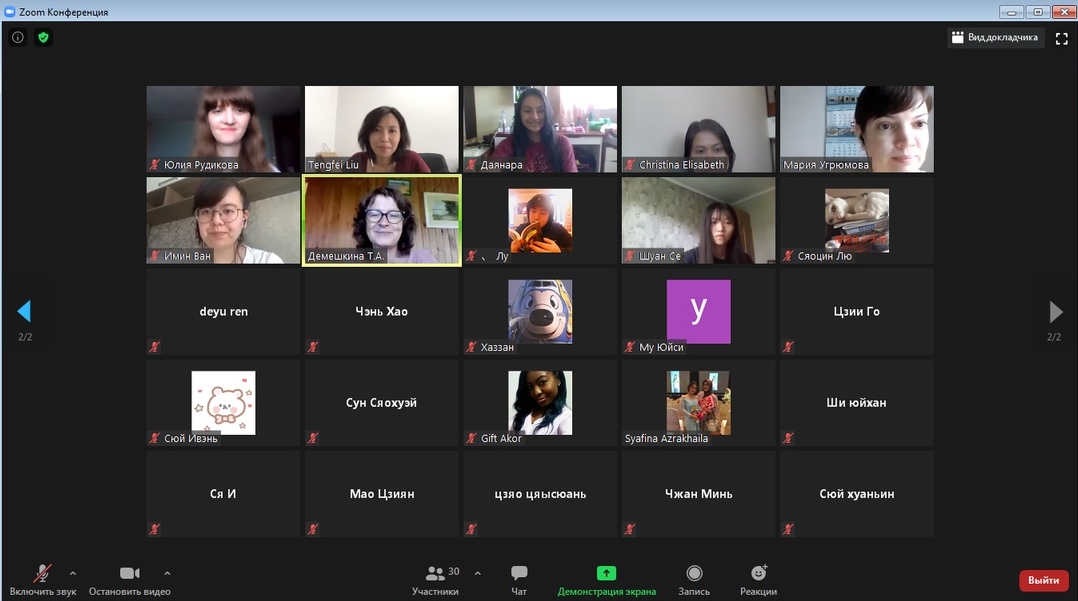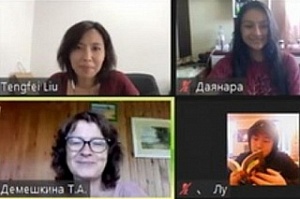The Summer School of Intensive Russian, hosted by the TSU Faculty of Philology, was held in a distance format for the first time and attended by 48 people from Nigeria, China, Laos, Ecuador, Egypt, Iraq, Bahrain, Indonesia, and Malaysia. Its purpose is the linguistic and cultural adaptation of applicants and students, including those who are not currently in Russia.
The students were divided into the groups according to their level of Russian language proficiency - A2, A2 +, B1, and B2. The study load included visiting in two pairs a day on the Zoom platform and doing homework. Most of the students were preparing for their first academic year at TSU, but some undergraduate and graduate students also signed up for the courses, wishing to improve their knowledge of the Russian language by the beginning of classes.
- The Faculty of Philology has a lot of experience in organizing summer language schools for international students, but for the first time, the school is being held remotely. We expected that there would be difficulties in the classroom - due to different time zones, technical problems, and the specifics of teaching Russian as a foreign language. But, for example, in the A2 + group, everything turned out great: a core team of motivated people who actively participated in the work was formed. Here interactive teaching tools helped significantly, - notes Yulia Rudikova, the teacher from the Department of International Business Communication.
Students evaluated the course as a rewarding experience that helped them to improve their language. In the coming academic year, they will continue to study Russian in TSU campus courses.
- I was able to improve my Russian and my grammar. During quarantine, I could not communicate with Russians, I even forgot how to communicate with people in Russian. I'm at home now, in Indonesia, and I can't speak Russian with anyone. Therefore, the summer school helps me so much, - one of the students formulated the results.
In the final lessons, the teachers noted the significant progress of students in Russian language proficiency: the development of listening, speaking, and writing skills, and the expansion of vocabulary.
- By the end of school, almost all students improved their auditory and pronunciation skills, adds Yulia Rudikova. - Most of all, the students are afraid to speak and demonstrate mistakes, and we created an environment that helped them overcome the language barrier and ensured a smooth transition to learning in Russian-language programs.


